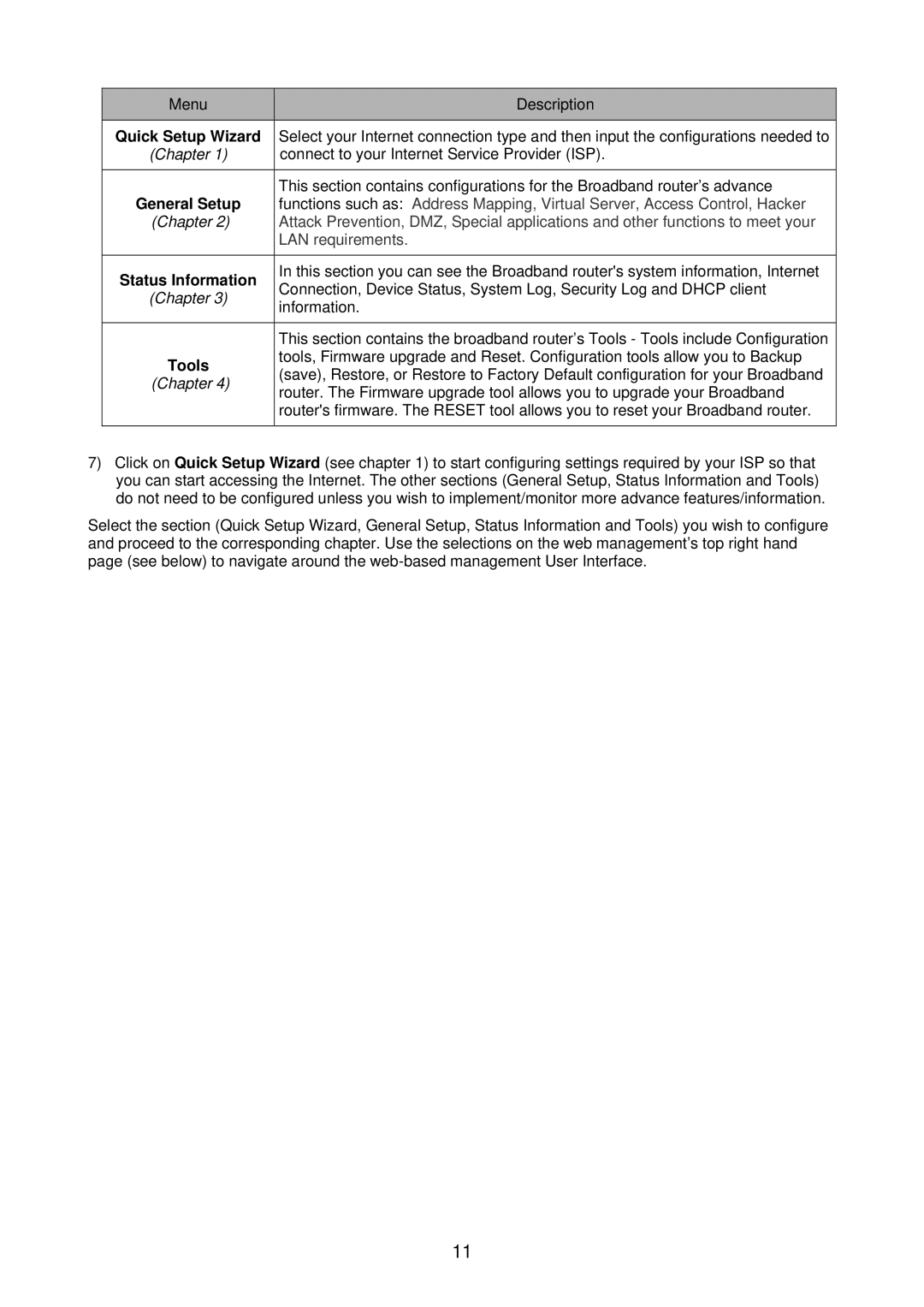| Menu |
| Description |
|
|
|
|
| Quick Setup Wizard |
| Select your Internet connection type and then input the configurations needed to |
| (Chapter 1) |
| connect to your Internet Service Provider (ISP). |
|
|
|
|
|
|
| This section contains configurations for the Broadband router’s advance |
| General Setup |
| functions such as: Address Mapping, Virtual Server, Access Control, Hacker |
| (Chapter 2) |
| Attack Prevention, DMZ, Special applications and other functions to meet your |
|
|
| LAN requirements. |
|
|
|
|
| Status Information |
| In this section you can see the Broadband router's system information, Internet |
|
| Connection, Device Status, System Log, Security Log and DHCP client | |
| (Chapter 3) |
| |
|
| information. | |
|
|
| |
|
|
|
|
|
|
| This section contains the broadband router’s Tools - Tools include Configuration |
| Tools |
| tools, Firmware upgrade and Reset. Configuration tools allow you to Backup |
|
| (save), Restore, or Restore to Factory Default configuration for your Broadband | |
| (Chapter 4) |
| |
|
| router. The Firmware upgrade tool allows you to upgrade your Broadband | |
|
|
| |
|
|
| router's firmware. The RESET tool allows you to reset your Broadband router. |
|
|
|
|
7)Click on Quick Setup Wizard (see chapter 1) to start configuring settings required by your ISP so that you can start accessing the Internet. The other sections (General Setup, Status Information and Tools) do not need to be configured unless you wish to implement/monitor more advance features/information.
Select the section (Quick Setup Wizard, General Setup, Status Information and Tools) you wish to configure and proceed to the corresponding chapter. Use the selections on the web management’s top right hand page (see below) to navigate around the
11
